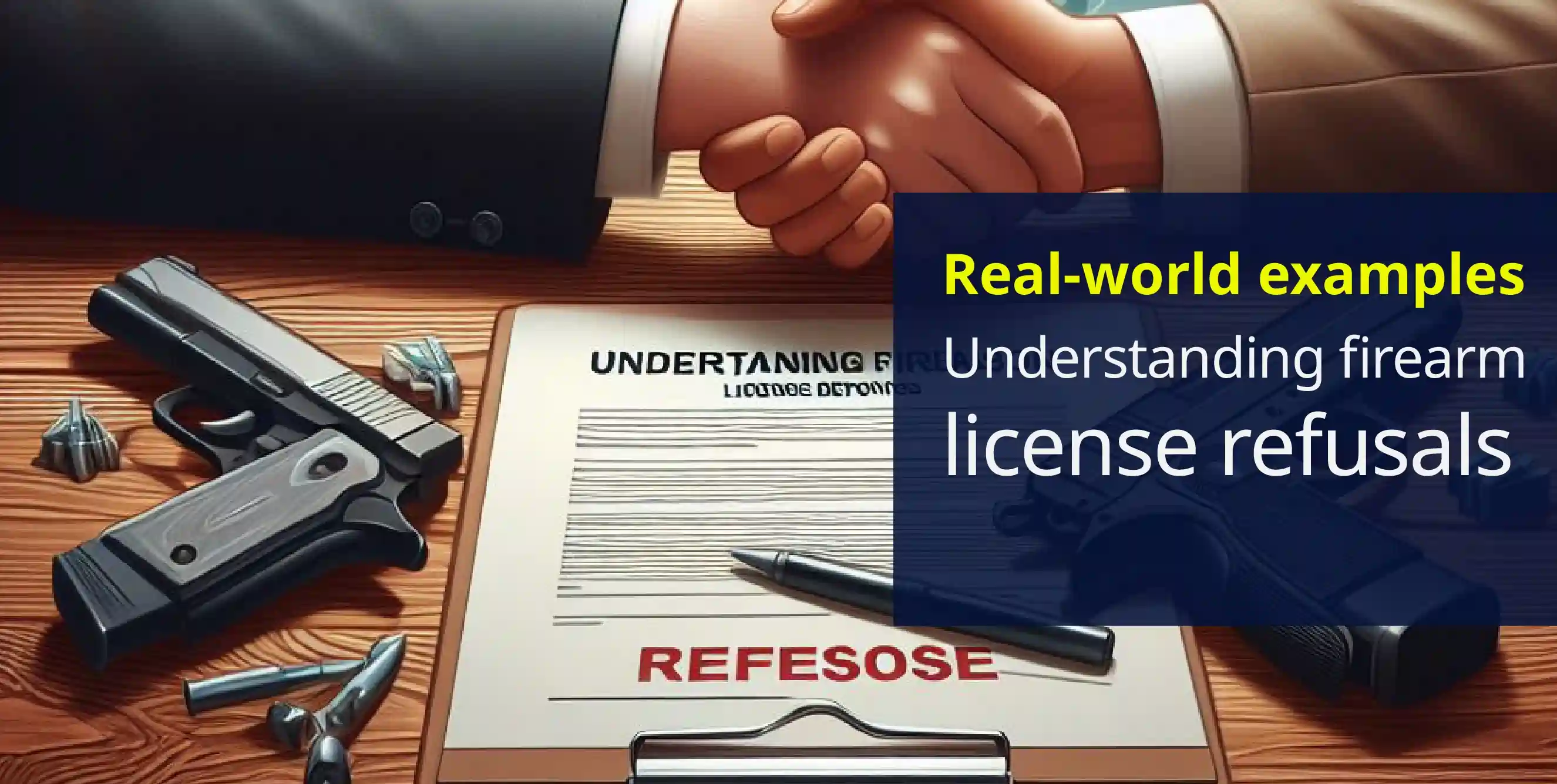Understanding firearm license refusals: Real-world examples
23-Jul-2024

Mark Eves
Firearm ownership in the UK is subject to strict regulations, and obtaining a firearms or shotgun certificate is no easy task. However, what happens when individuals are refused or have their certificates revoked? In this blog, we will explore real-world examples of people who have faced firearm license refusals and revocations, shedding light on the reasons behind these decisions and the potential consequences.
Case 1: Unsound mind
John, a passionate hunter and firearm enthusiast, applied for a shotgun certificate. Unfortunately, his application was refused due to concerns about his mental health. John had a history of depression and had sought professional help in the past. Medical reports indicated that his mental health was not stable enough to ensure safe firearm ownership. In this case, the police deemed John to be of "unsound mind," leading to the refusal of his shotgun certificate.
Case 2: Intemperate habits
Sarah, an aspiring sports shooter, had her firearm certificate revoked. The police received reports of her engaging in aggressive and antisocial behaviour, often fueled by excessive alcohol consumption. Sarah's regular confrontations with her neighbours and her record of public disturbances were considered clear indicators of "intemperate habits." Consequently, her firearm certificate was revoked to mitigate potential risks to public safety and peace.
Case 3: Risk to public safety or the peace
James, a firearm enthusiast, had his shotgun certificate revoked due to associations with individuals involved in criminal activities. While he was not directly involved in any criminal acts, his close friendships with people engaged in unlawful behaviour raised concerns about a "risk to public safety or the peace." The police considered James' associations as a potential threat to the community, prompting the revocation of his certificate.
Case 4: Criminal record
Emma, a former gun owner, had her firearm certificate revoked following a three-month prison sentence for a non-violent offence. The law stipulates that anyone who receives a prison sentence of three months or more, whether suspended or immediate, is automatically prohibited from possessing a firearm. In Emma's case, her revocation was a mandatory consequence of her criminal record.
Appeals and legal support
In each of these cases, the individuals had the right to appeal against the refusal or revocation of their firearm certificates. The appeals process offers a chance for applicants to present additional evidence or demonstrate changes in circumstances that may warrant reconsideration.
Legal experts can play a pivotal role in such appeals, helping applicants navigate the complexities of the process and make a persuasive case. Judges handling these appeals have significant discretion, considering all available evidence and arriving at a decision they deem reasonable based on the facts presented.
Funding your appeal
Funding an appeal is a crucial consideration. Some individuals may benefit from legal expenses insurance provided by clubs or associations like the British Association for Shooting and Conservation (BASC) or the Clay Pigeon Shooting Association (CPSA). Others may choose to finance their appeals independently, with various budget-friendly options available.
Continuing to shoot
While undergoing the appeals process, individuals whose certificates have been revoked can continue to engage in shooting activities, albeit under specific conditions. They are considered non-certificate holders and must adhere to the same regulations as those without certificates. Seeking legal advice during this period can help individuals understand their rights and limitations.
Conclusion
Real-world examples of firearm license refusals and revocations illustrate the stringent criteria and considerations involved in the UK's firearm licensing process. These cases highlight the importance of adhering to the regulations and maintaining a commitment to public safety and peace, which underlie the decisions made by law enforcement agencies. Understanding the reasons behind refusals and revocations can help individuals navigate the appeals process and make informed decisions regarding their firearm ownership.
Must read:
- A buyer's guide to purchasing second-hand guns online
- Understanding the legal ramifications of poor gun ownership
- What are the laws for shotguns in the UK?
- What is a section 1 firearm in the UK?
